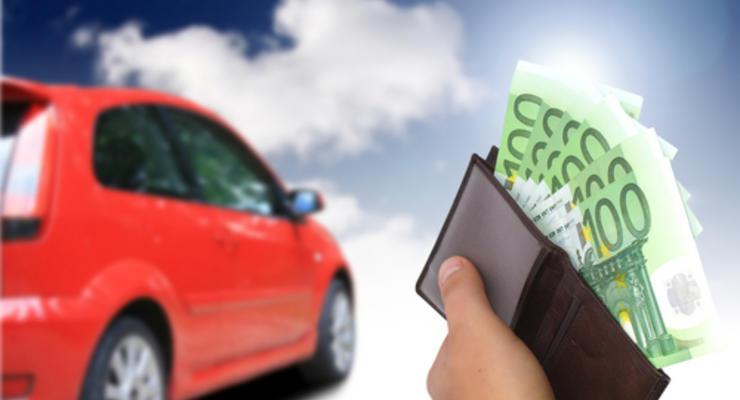
How to buy a car that has been financed

With due diligence, buying a car that is still under financing shouldn't be a problem.
There are a few small but important differences between buying a house and buying a car, with the small difference in cost being perhaps the most obvious. Secondly, we don't think about buying real estate from someone who still owes thousands or millions of dollars for it, because banks pay other banks to close mortgages - that's just part of the deal.
However, buying a funded car is more troubling than trying to dance cheek to cheek around the Louvre with the Mona Lisa. Of course, buying a financed car is just as worthwhile as buying a house, to be honest.
So the possibility of a private sale turning into a financial tangle should not put you off; With over four million used cars changing hands in Australia every year, the benefits of buying privately are clear.
All you really need to do, as with any major purchase, is prepare ahead of time when it comes to finances, just like you would when considering car maintenance issues, service history, and so on.
You need to be absolutely sure about the financial condition of the car, of course, because the responsibility for checking lies with you, and if you don't, you can fall into a world of pain.
What are the potential pitfalls?
As we discussed in our article on selling financed cars, it all comes down to how car loans work. Because car finance uses the car as collateral, the loan is applied to the car, not the owner. The owner is still obligated to repay the loan, and until they do so, any outstanding amount on the loan is held against the car and not the borrower.
This is where potential used car buyers can get a little confused. While dealers and auction houses are required to provide proof of clear ownership and face severe penalties for breaching their obligations, private sellers are not subject to the same rules.
The big risk of buying a car with finances attached is that you will lose the car.
This means that any number of problems can hide behind a supposedly good deal, including hidden interests in the car. If you inadvertently buy a car with the money owed from it, you will end up in debt or completely lose your car when the finance company takes it back to recoup their losses, Justin Davis of CANSTAR Credit Scoring Services explains.
“The big risk of buying a car with finances attached is that you will lose the car,” she says.
“If this car was used as collateral for a loan, then the financial institution has ownership.”
It really is that serious. Under Australian law, the buyer is responsible for verifying the ownership of the vehicle; if everything falls apart, you won't have a leg to stand on, but you'll need two to walk everywhere.
You will either have to pay off the balance on the loan or the car will be confiscated and sold, leaving you with empty pockets and plenty of time to regret your decisions while you wait for the bus.
How to avoid risks?
As long as any financial agreement is open, there really is no problem with buying a car that is still subject to a loan; it is only when the seller hides the fact that there is still money to be paid that everything goes pear-shaped.
If the seller hasn't told you that he still owes money for the car, that's a sure sign that one of two things is going on. The seller either deliberately deceives you, or, which is extremely unlikely, simply does not know about the encumbrance of the car. In any case, it's time to leave.
Check the Personal Property Securities Register
While this all sounds intimidating, there is an easy and cheap way to avoid the fiasco - check out the Personal Property Securities Registry or PPSR.
REVS revolution
PPSR is the new name for the old school REVS (Register of Encumbered Vehicles) verification that was deprecated in 2012 (at least the government version, private sites like revs.com.au still exist).
The PPSR is an extensive nationwide registry that tracks loans for Australian cars, motorcycles, boats and anything of value, even art. The old REVS system was a state-by-state concern that dealt only with vehicles.
“You can visit http://www.ppsr.gov.au to check using the vehicle identification number,” Davis explains.
Make your first check the moment you consider buying a car.
“If your potential car is under financing, the certificate you get from searching the Personal Property Securities Registry will contain details of the type of loan and who owns the loan.”
Verification through PPSR costs only $2 and gives you concrete proof of no or present credit. In fact, it's so cheap that it's worth doing it twice.
“Ideally, do your first inspection the moment you consider buying a car,” says Davis.
"Do one more check on the day of purchase before handing over a bank check or making an online transfer, in case the seller took a quick loan between the two."
Is it worth buying a credit car?
As long as you do your due diligence beforehand and deal with an honest seller, there is no reason why buying a car that is still under financing should be any more difficult than buying a car with a clear title. However, it is important to make sure that when you sign your name on the bill of sale, there is no money left owed for the car.
“If you’re going to buy a car loan — maybe the seller can’t pay off their car loan until they have money from the sale — then do the sale at the office of the financial institution that holds the car loan,” he says. Davis.
“So you can pay for the car, the seller can repay the loan, and you can get unencumbered ownership of the car at the same time.”
It's much like going to a real estate agent or a bank to sign paperwork to buy a house, only the numbers on the paperwork you sign are less likely to make your heart race.